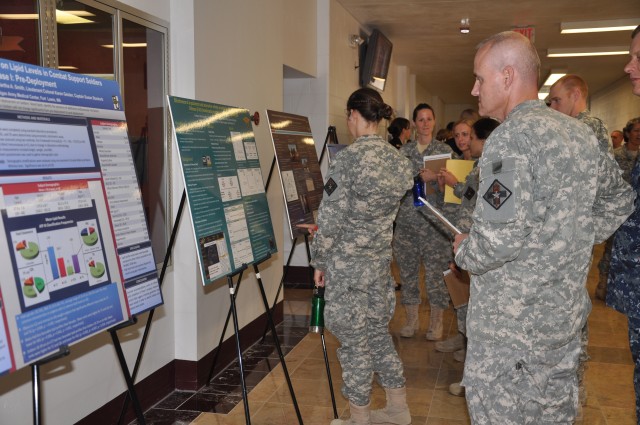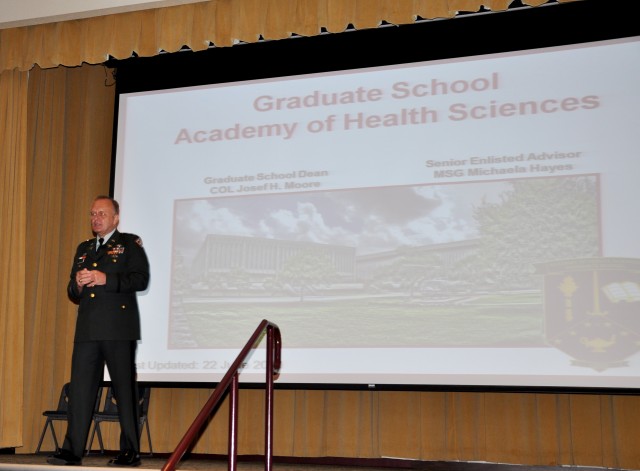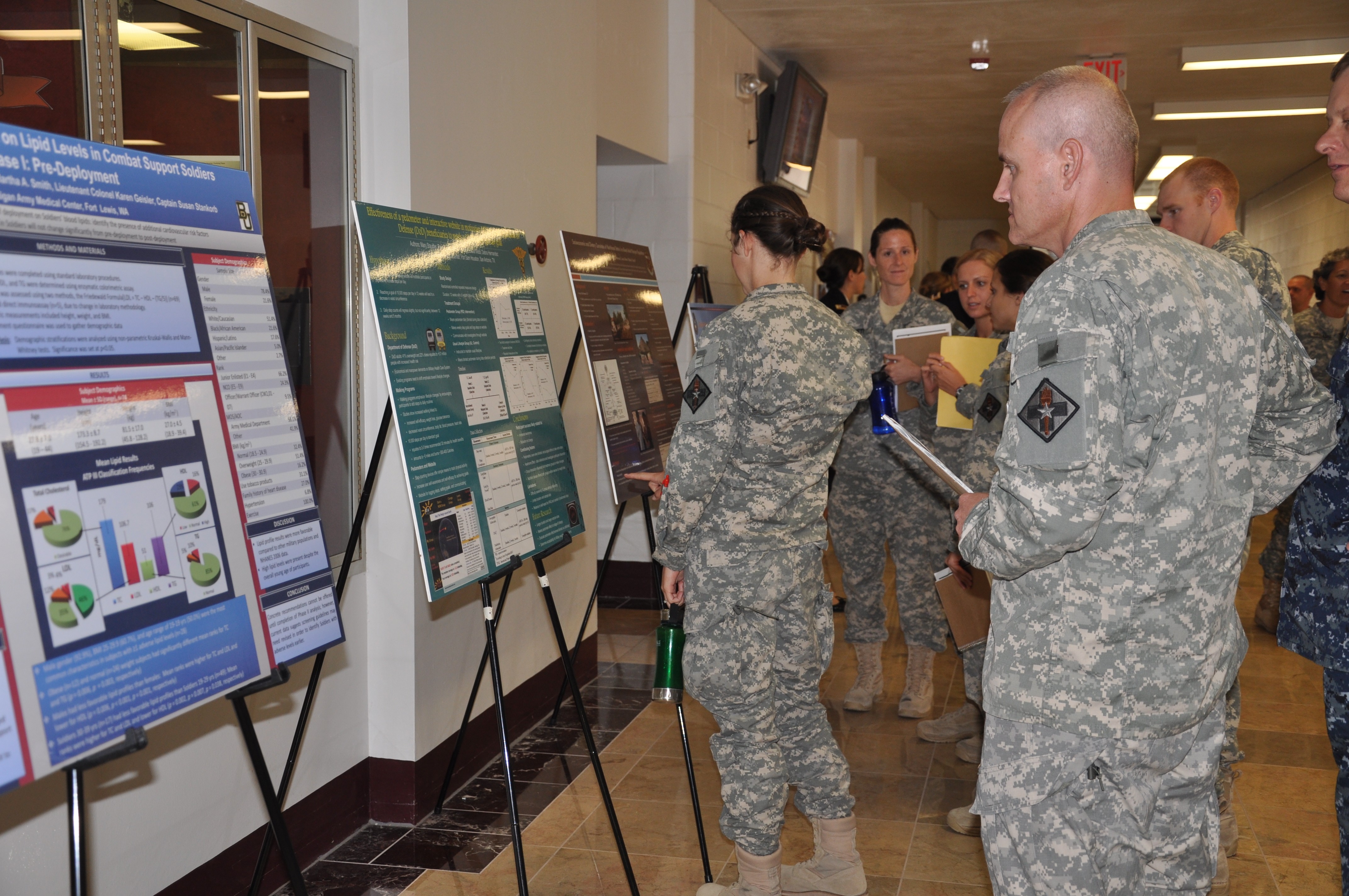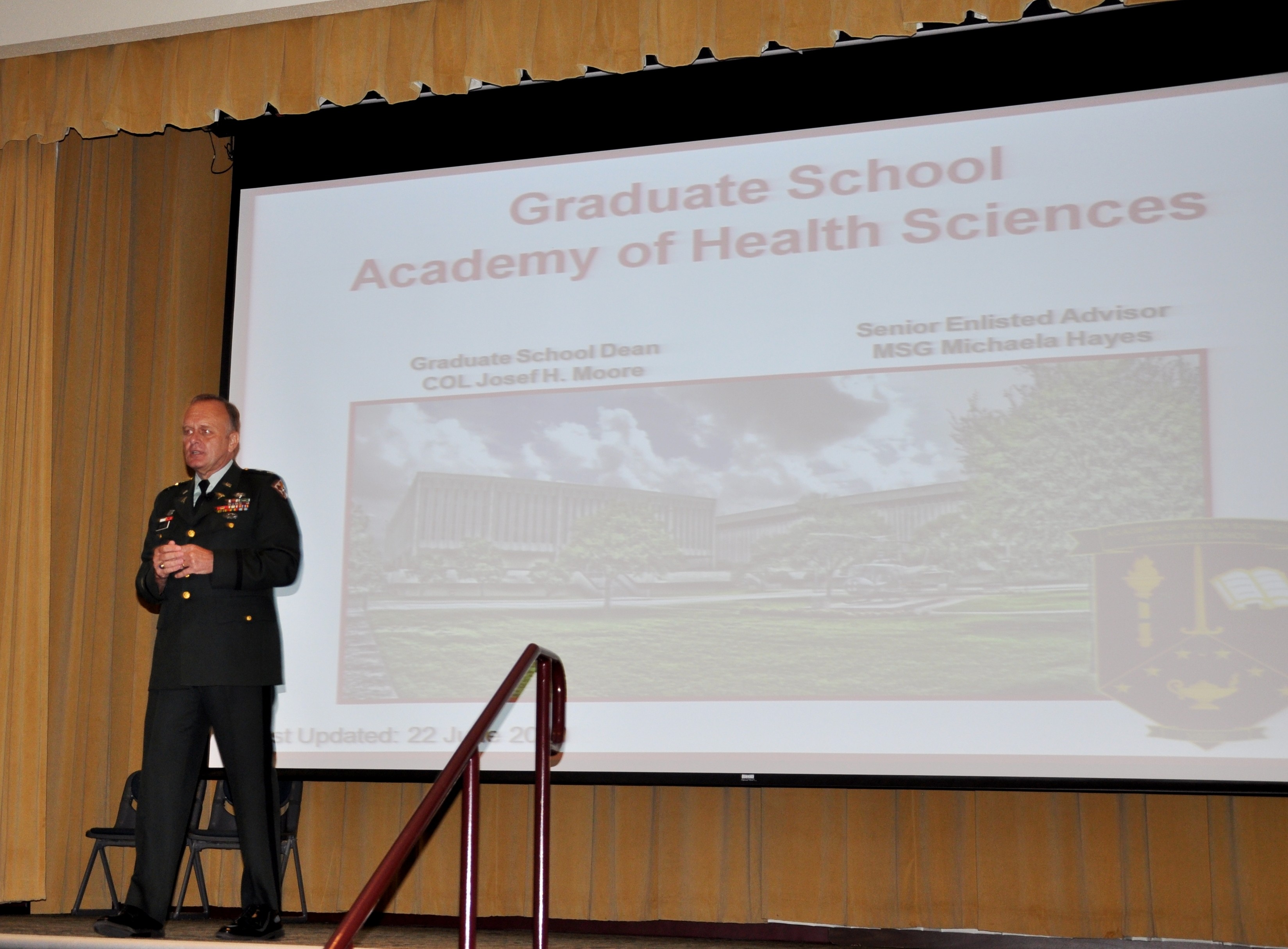FORT SAM HOUSTON, Texas --The Academy of Health Sciences Graduate School hosted its first research day June 22 at the Army Medical Department Center & School to provide leadership, faculty and students the opportunity to learn about research being conducted as part of its programs.
"Our mission is more than just student education. It's also development of faculty and it looks across a broad spectrum of academics, research and service," said Col. Josef Moore, dean of the Graduate School.
"Today we focus primarily on what most of us in academia consider to be the cornerstone of our profession - the cornerstone of graduate education, that's research."
To date, the Graduate School has received $19.5 million in grants for various research projects.
"We have 12 graduate degree producing programs within our Graduate School, six that are here [at Fort Sam Houston]; then we have six programs that are in our [master's program schedule] across the spectrum of the Army," the dean said.
Presentations were given by faculty members of the U.S. Army Graduate Program in Anesthesia Nursing; U.S. Army-Baylor Doctoral Program in Physical Therapy; U.S. Army-Fayetteville State Masters of Social Work; U.S. Military-Baylor University Graduate Program in Nutrition; Doctor of Ministry, Pastoral Care Program and the U.S. Army-Baylor Graduate Program in Health and Business Administration.
"We are very proud of those programs and all of the programs to date that have been producing wonderful research. Most of [the research] is completely geared toward Soldier readiness," Moore said.
Lt. Col. Deydre Teyhen presented an overview of one study by the Doctoral Program of Physical Therapy on the impact of running-related injuries on Soldiers' feet.
Teyhen is also currently chair of the Graduate School Council, which began two years ago.
"Our motto is warrior-driven research because all the research we are doing is to support the warrior and his or her Family," Teyhen said.
"In that short period of time, we have been able to accomplish a lot," she said.
"What I hope you see today is that each of the graduate programs, even though some of them are still in their infancy, have developed lines of research and have a strategic vision for how they move forward with research.
"Although we are 41 strong in the PhDs here at the AMEDDC&S we are much stronger when we collaborate with other researchers across the country, both military and civilian," Teyhen said.
There are 26 sites throughout the country participating in the research, but a lot of the research begins at the Graduate School. Forty-two civilian universities are part of the research program.
In another presentation, Maj. Forest Kim described his study on the impact of Tricare for Life on reduced health care utilization and expenditures among different Medicare beneficiaries.
Other researchers and faculty members presented overviews of their programs and research studies as well.
Col. Mustapha Debboun presented an overview of the AMEDD Journal and its importance to the AMEDDC&S.
Researchers also displayed posters highlighting their work in the lobby of Willis Hall.
"We talked about how the research is giving findings that are useful in what we do in military medicine and putting the AMEDDC&S in the epicenter of providing support to military medicine, but there is another way of looking at this as well," said Maj. Gen. David Rubenstein, commander of the AMEDDC&S.
Rubenstein quoted a book written about the Mayo brothers, titled "The Doctors Mayo." In the book the author wrote, "The only victor in war is medicine."
"The researchers and the programs that we listened to today are living that," the general said.
"The results of your work in areas of research are not only contributing to military medicine you are also contributing to medicine in America and across the world," Rubenstein concluded.




Social Sharing